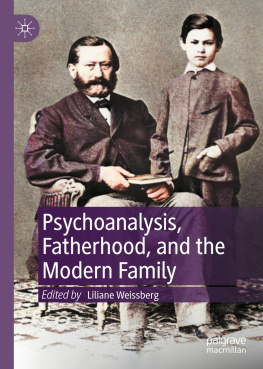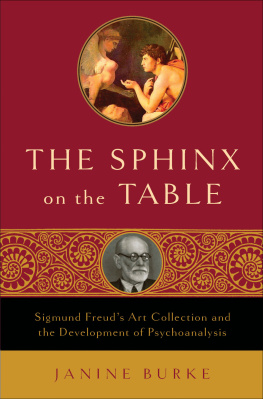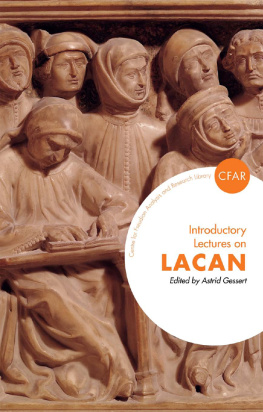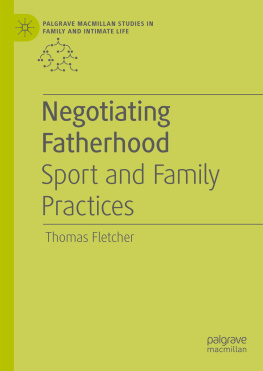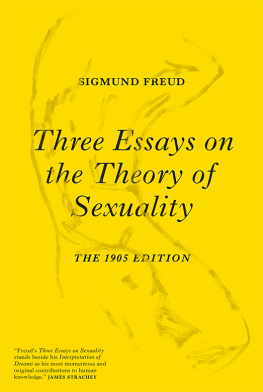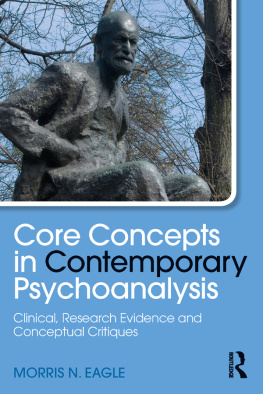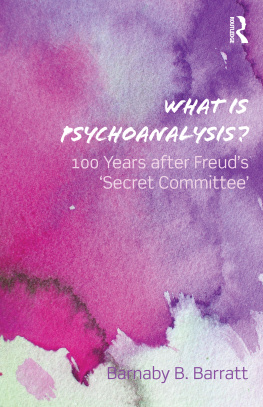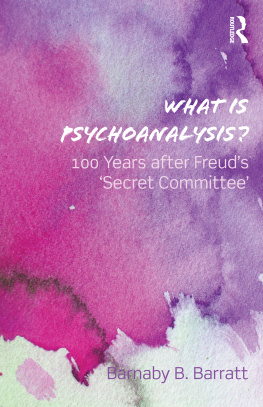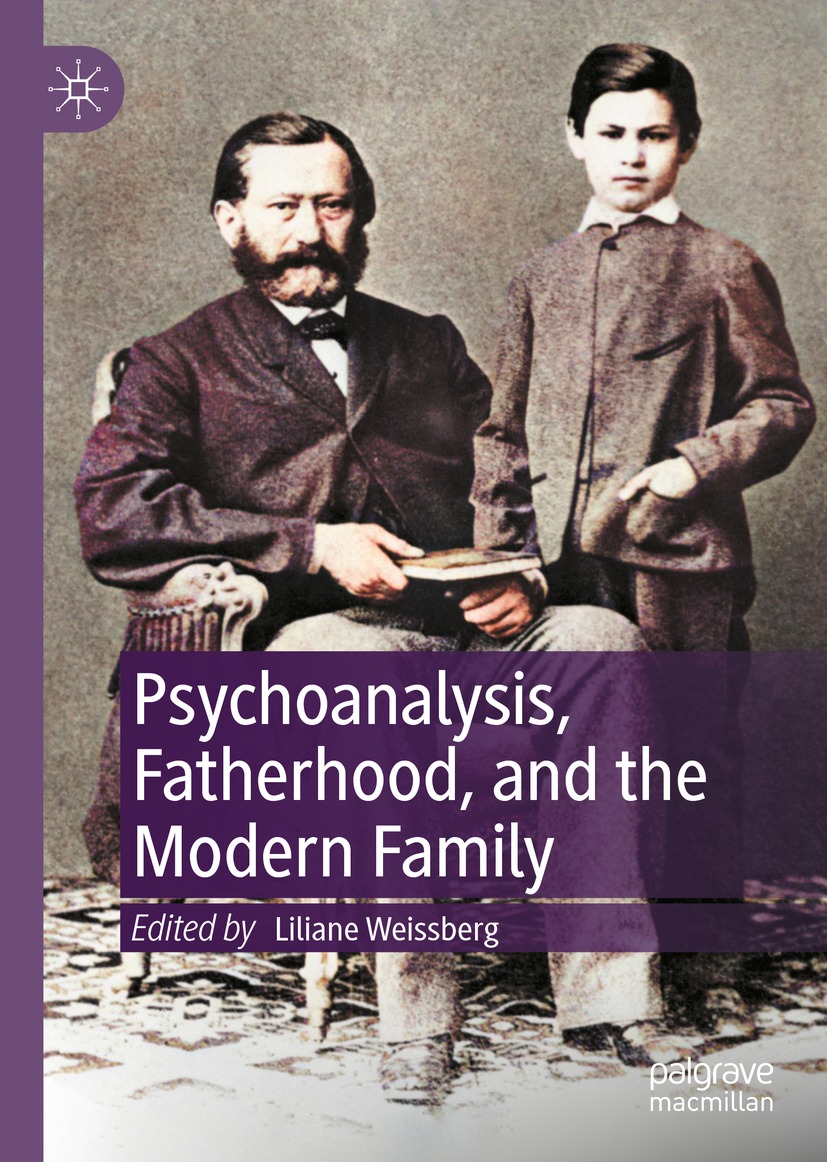Psychoanalysis, Fatherhood, and the Modern Family
1st ed. 2022

Logo of the publisher
Editor
Liliane Weissberg
Department of German and Program in Comparative Literature and Literary Theory, University of Pennsylvania, Philadelphia, PA, USA
ISBN 978-3-030-82123-4 e-ISBN 978-3-030-82124-1
https://doi.org/10.1007/978-3-030-82124-1
The Editor(s) (if applicable) and The Author(s), under exclusive license to Springer Nature Switzerland AG 2022
This work is subject to copyright. All rights are solely and exclusively licensed by the Publisher, whether the whole or part of the material is concerned, specifically the rights of translation, reprinting, reuse of illustrations, recitation, broadcasting, reproduction on microfilms or in any other physical way, and transmission or information storage and retrieval, electronic adaptation, computer software, or by similar or dissimilar methodology now known or hereafter developed.
The use of general descriptive names, registered names, trademarks, service marks, etc. in this publication does not imply, even in the absence of a specific statement, that such names are exempt from the relevant protective laws and regulations and therefore free for general use.
The publisher, the authors and the editors are safe to assume that the advice and information in this book are believed to be true and accurate at the date of publication. Neither the publisher nor the authors or the editors give a warranty, expressed or implied, with respect to the material contained herein or for any errors or omissions that may have been made. The publisher remains neutral with regard to jurisdictional claims in published maps and institutional affiliations.
Cover illustration: ARCHIVIO GBB / Alamy Stock Photo
This Palgrave Macmillan imprint is published by the registered company Springer Nature Switzerland AG
The registered company address is: Gewerbestrasse 11, 6330 Cham, Switzerland
Psychoanalysis, Fatherhood, and the Modern Family
At a time when cultural and academic discourse is overflowing with ideas about diversity and fluidity in gender and personal life, it is easy to overlook how Freuds concept of the Oedipus Complex continues to shape our most deeply held beliefs about fatherhood and the family. This fascinating book draws on a range of theoretical, clinical, and empirical perspectives to question, challenge, and highlight the relevance of Freuds work today. A wonderful collection of essays to stimulate debate and reflection for years to come.
Tabitha Freeman, Former Senior Research Associate at Centre for Family Research, University of Cambridge, UK
This is a first-rate collection of essays, which will revitalize the debate on one of the most important, influential, and controversial topics of psychoanalysis. All the essays are illuminating, learned, and engagingly written. It makes for an informativeas well as exciting and fun!read.
Mario Tel, Professor of Classics and Comparative Literature, University of California, Berkeley
This volume takes us not only to Freud, his father, Oedipus, and Oedipus, but also to many of their interlocutors and critics from within the history of psychoanalysis as well as anthropology, feminism, and philosophy. Its lucid introduction and many splendid essays illuminate fatherhood from different angles even while making paternity itself uncanny. As a result, Psychoanalysis, Fatherhood, and the Modern Family will appeal to a wide range of readersstudents, teachers, and the psychoanalytic community more generallyeager to learn all about fathers, past and present.
Andrew Parker, Professor of French and Comparative Literature, Rutgers University, USA
Acknowledgments
This book had its origin as a workshop, sponsored by the University of Pennsylvania in the context of the Colleges Year of Health program. David Fox from Penns College Office suggested that I organize an event for that year, and taking him up on the idea, I set out to plan a collaboration with the Psychoanalytic Center of Pennsylvania (PCOP). As such, Psychoanalysis, Fatherhood, and the Modern Family became part of a series of lectures and colloquia that mark the cooperation between these institutions, organized to foster a wider appreciation of, and reflection on, psychoanalytic thought, and to sponsor conversations between practicing analysts and University faculty. This ongoing cooperation has led to new programs for the PCOP and to the creation of a psychoanalytic studies minor at Penn. I would like to thank David Fox, as well as Gregory Urban of Penns Department of Anthropology, Lawrence Blum of the PCOP, and Richard Summers of Penn Psychiatry and PCOP, for their sponsorship and encouragement of, as well as participation in, the workshop. I would also like to thank German graduate students David Nelson and Alan Madin for their support. Martina Bale in German provided administrative help and Eduardo Glandt, then Dean of the School of Engineering, offered us the space for an event that quite literally engaged the University as a whole.
Some workshops do conclude at the end of the day. In this case, the discussions went on. Conversations about the role of fatherhood in Freuds work, as well as that of his successors and critics, continued, as did those regarding the role of the father in modern society. The participants of the workshop remained in touch and engaged, and new scholars and psychoanalytic practitioners joined the project as it expanded far beyond Philadelphia. The chapters collected in this book document the discussion. For me, at least, the book project evolved into a prime example of the kind of work a cooperation between a University and a Psychoanalytic Institute can and should promote.
As the project has evolved, I have been aided by various persons and institutions. In the psychoanalytic community, I would like to single out Beverly Stoute for special thanks. Penns Research Council and the Deans Office supplied funds for the preparation of the book. Philip Getz guided the project expertly at Palgrave Macmillan, and I am very grateful for his advice and support. I am also grateful for the constructive feedback that I received from the anonymous readers of the manuscript. And as always, I would also like to thank Jerry Singerman for his support.
Our groups project will embark into print, but our conversations will continue.
March 2021
Liliane Weissberg
Contents
Liliane Weissberg
Part IFreud Discovers Oedipus
Richard H. Armstrong
Harold Blum
Part IIThe Oedipus Complex After Freud
Jean-Michel Rabat
Dorothea Olkowski
Adrian Daub
Part IIIPrivate and Public Fathers
C. Jama Adams
Patricia Gherovici
John Frank
Liliane Weissberg
Part IVMedia Matters
Laurence A. Rickels
Avital Ronell
List of Figures
Notes on Contributors
C. Jama Adams
is Associate Professor of Psychology at the John Jay College of Criminal Justice, City University of New York, USA. He has written extensively on the role of fathers in Caribbean-American and African-American families and psychoanalytic perspectives on Blackness. His work has appeared in the

